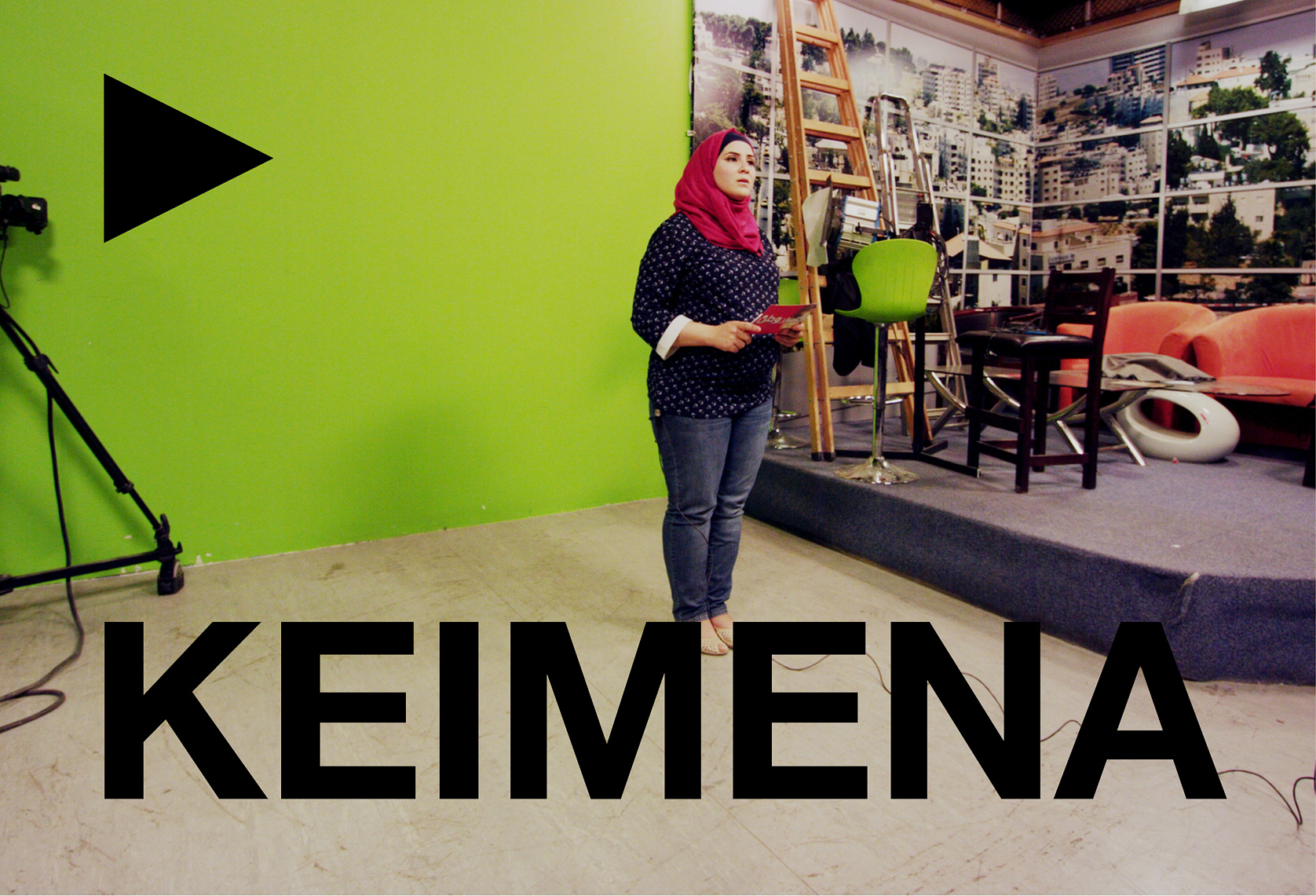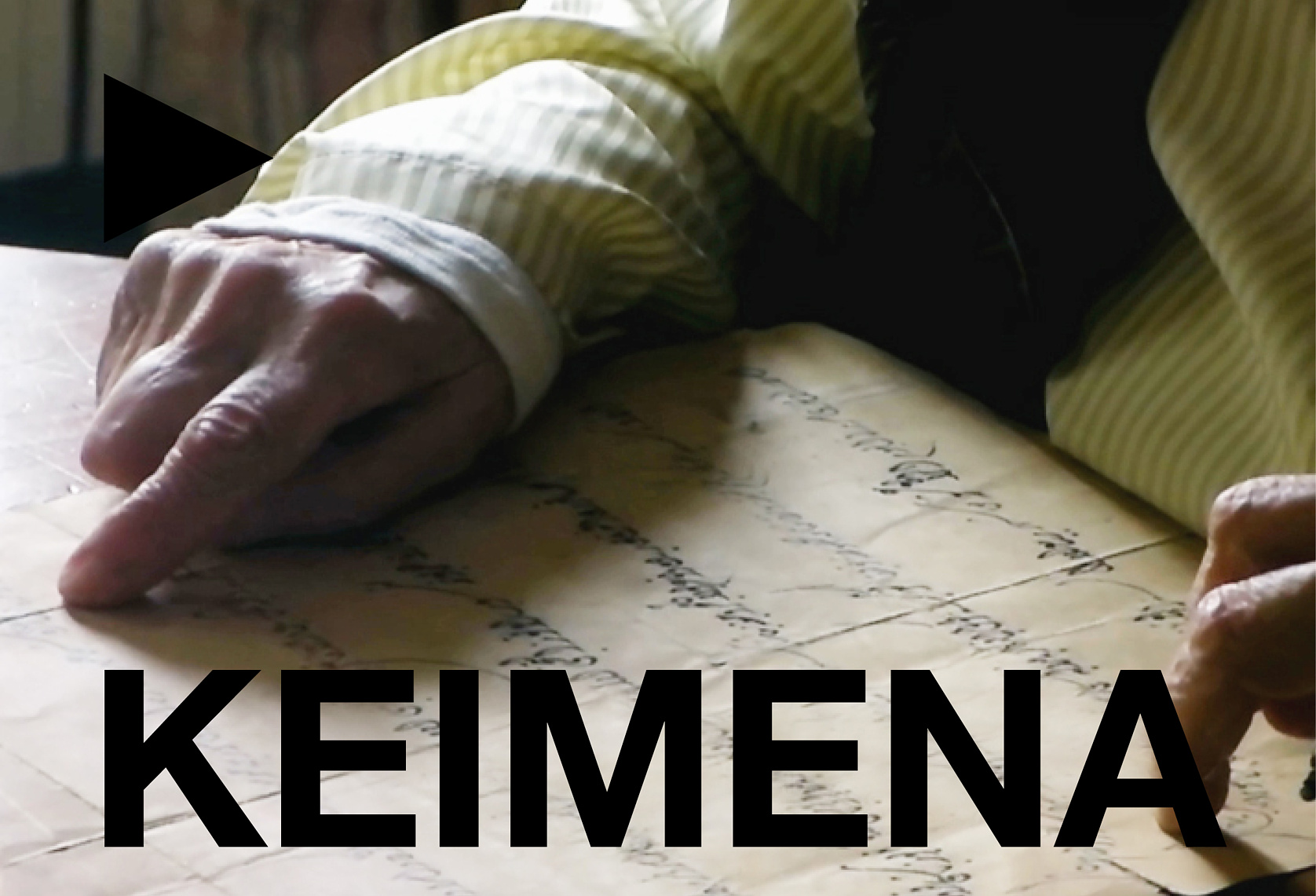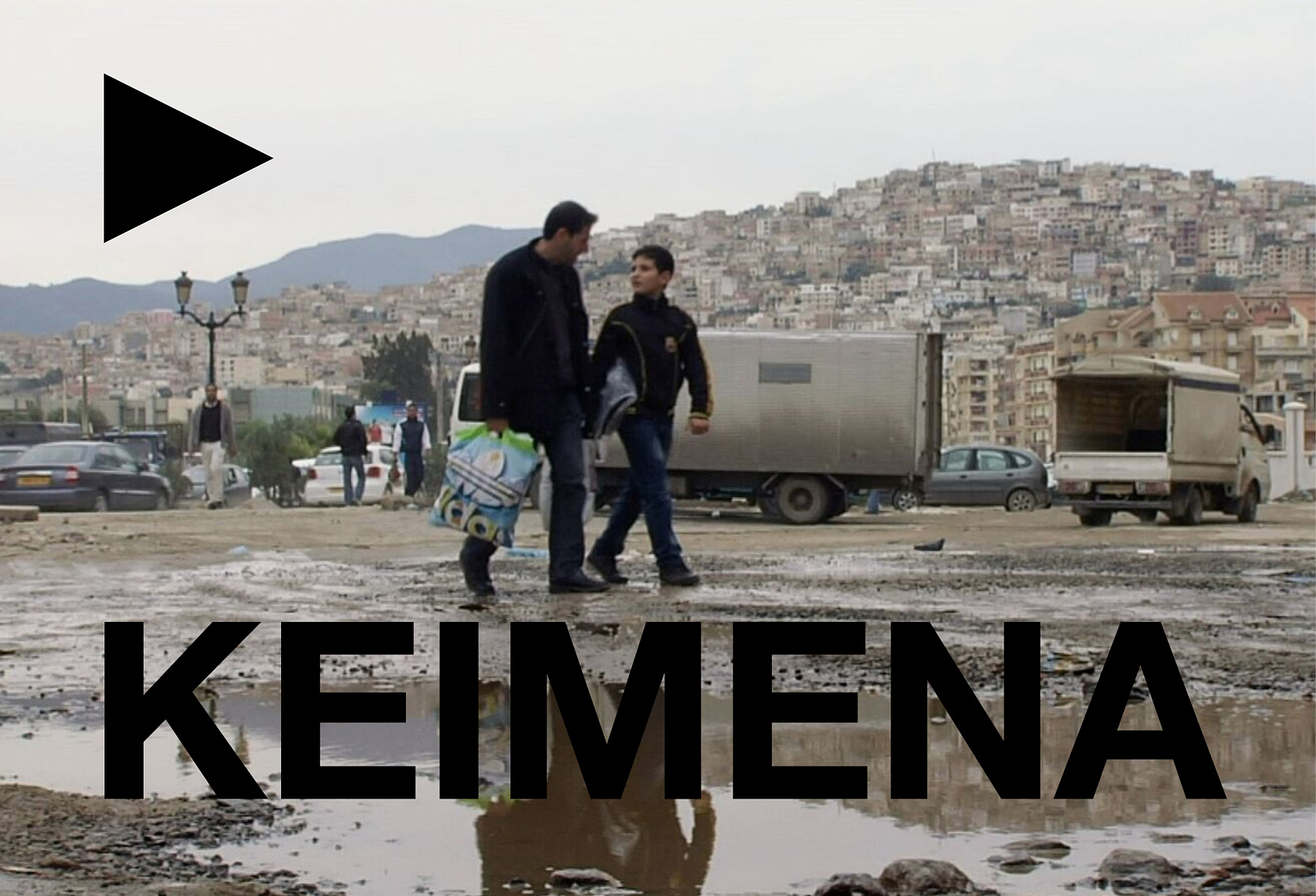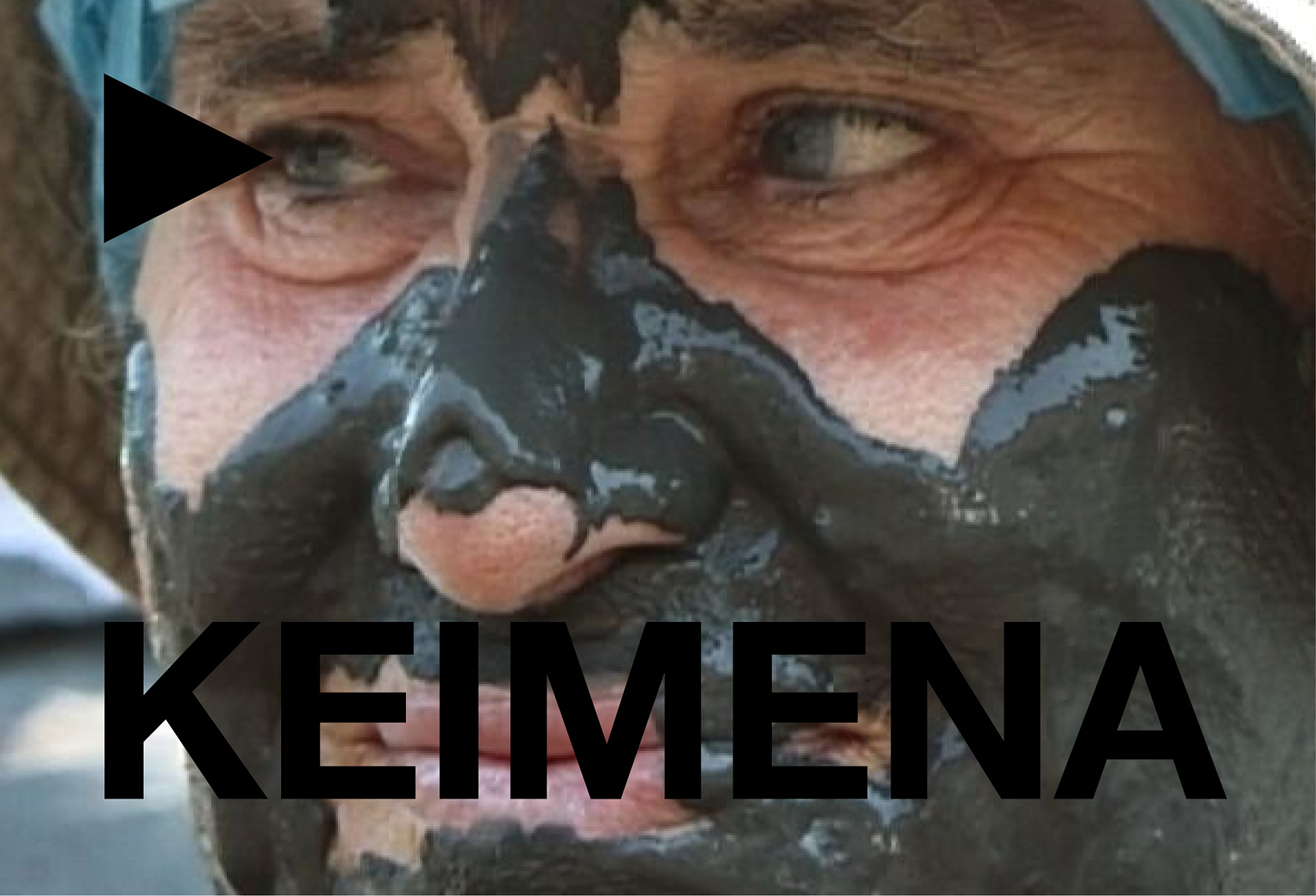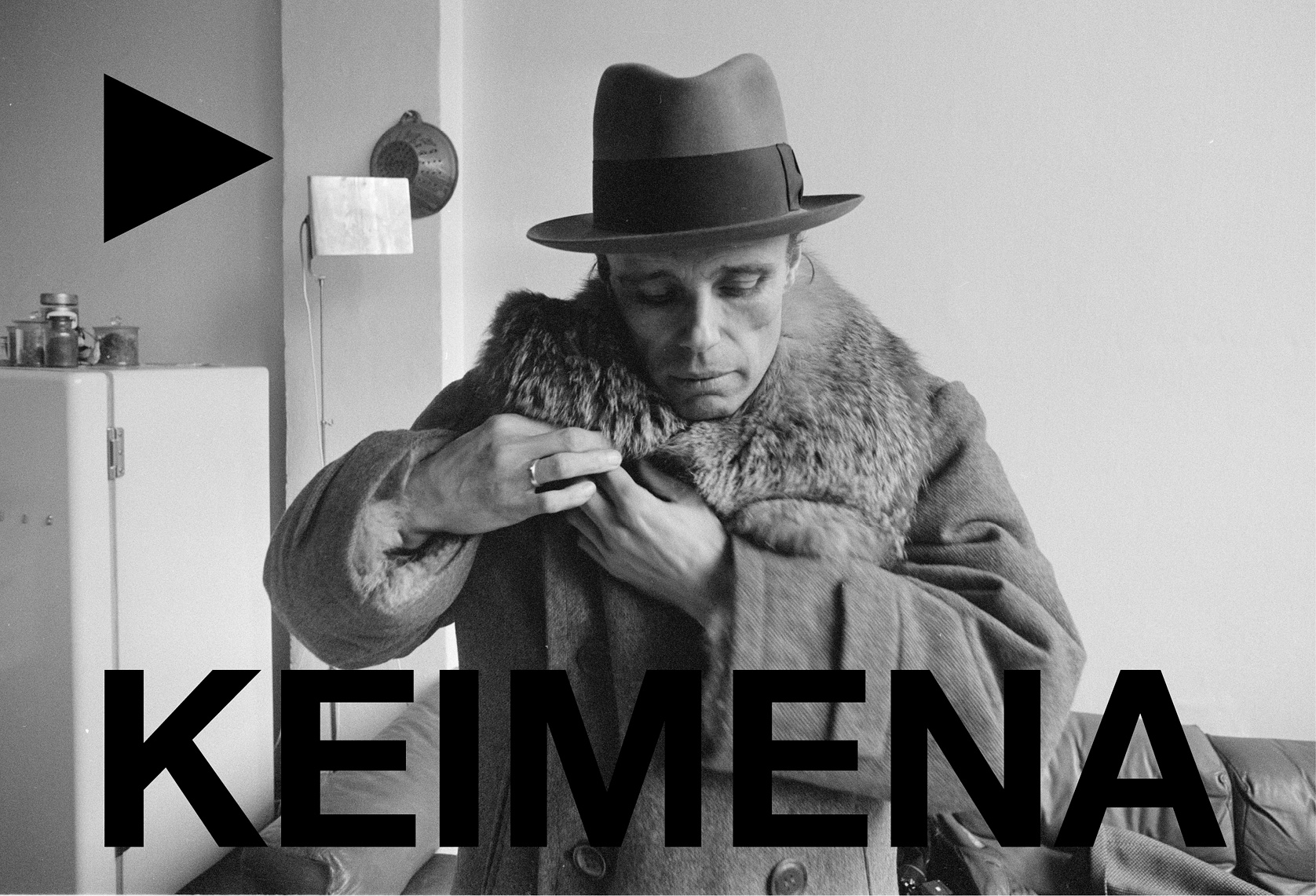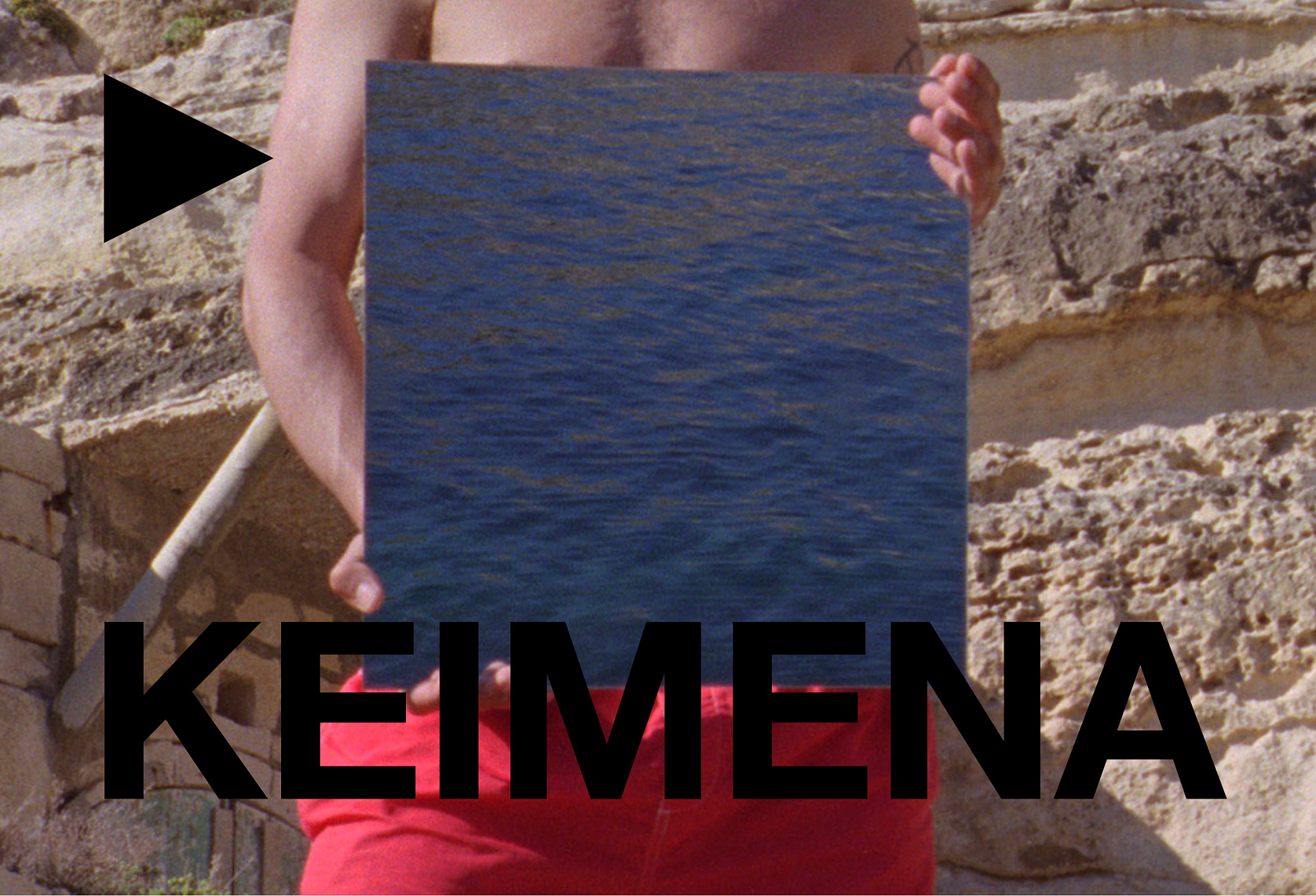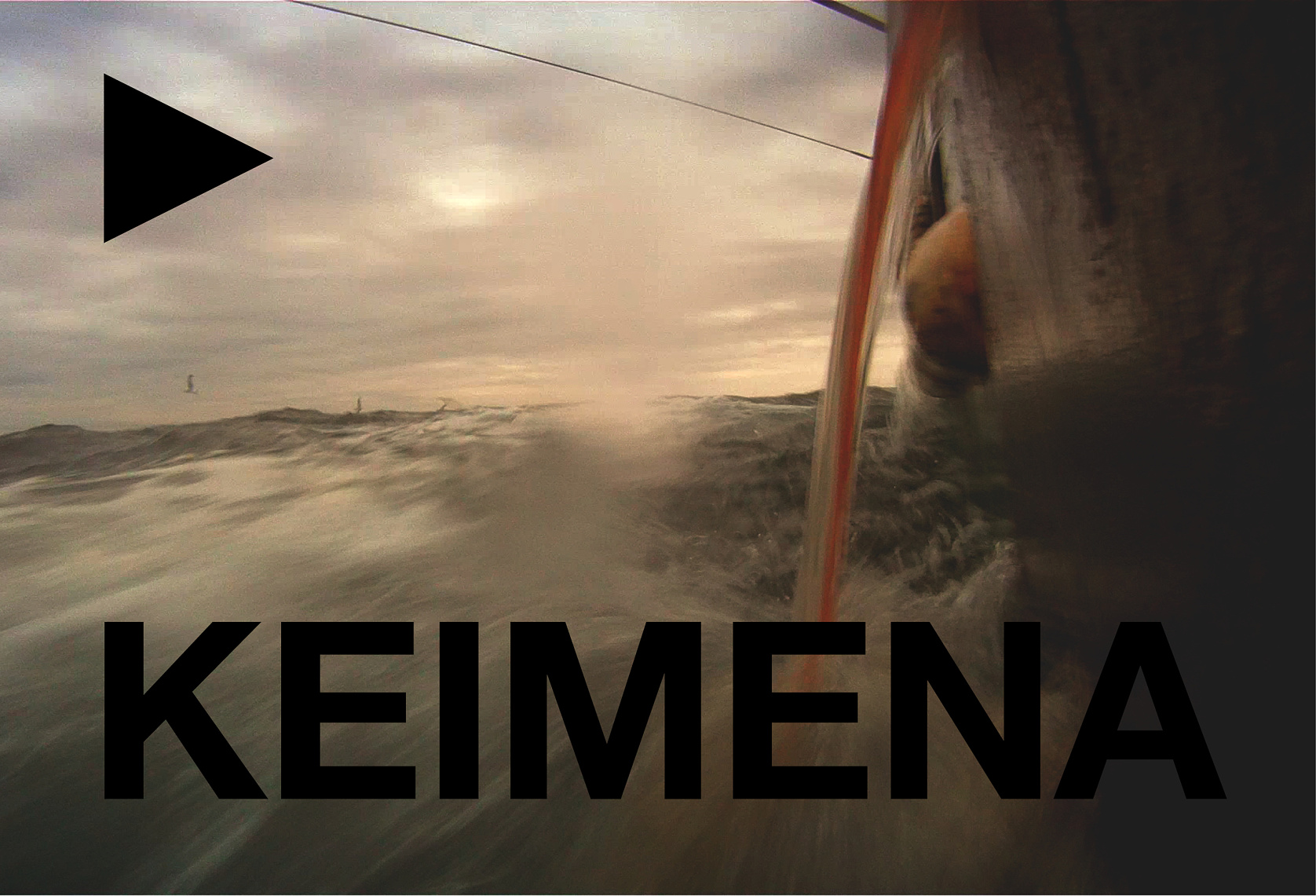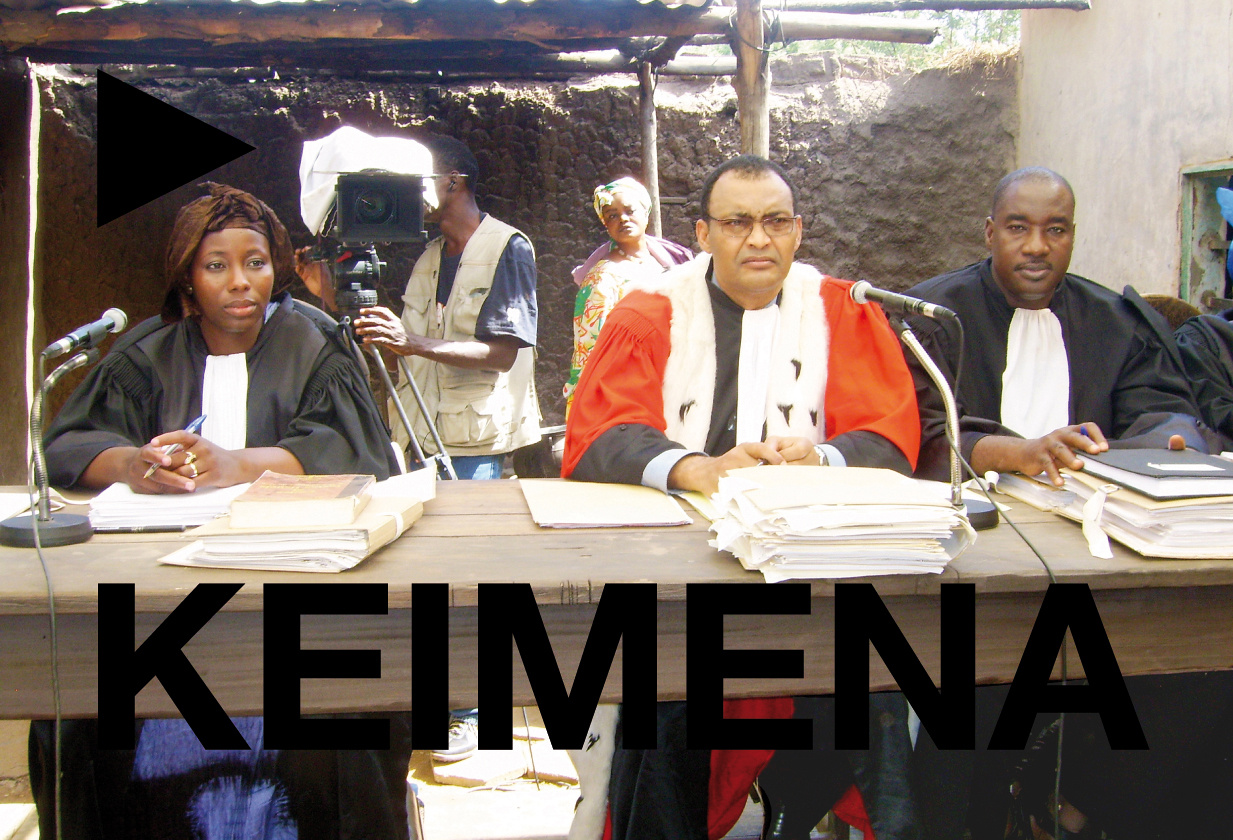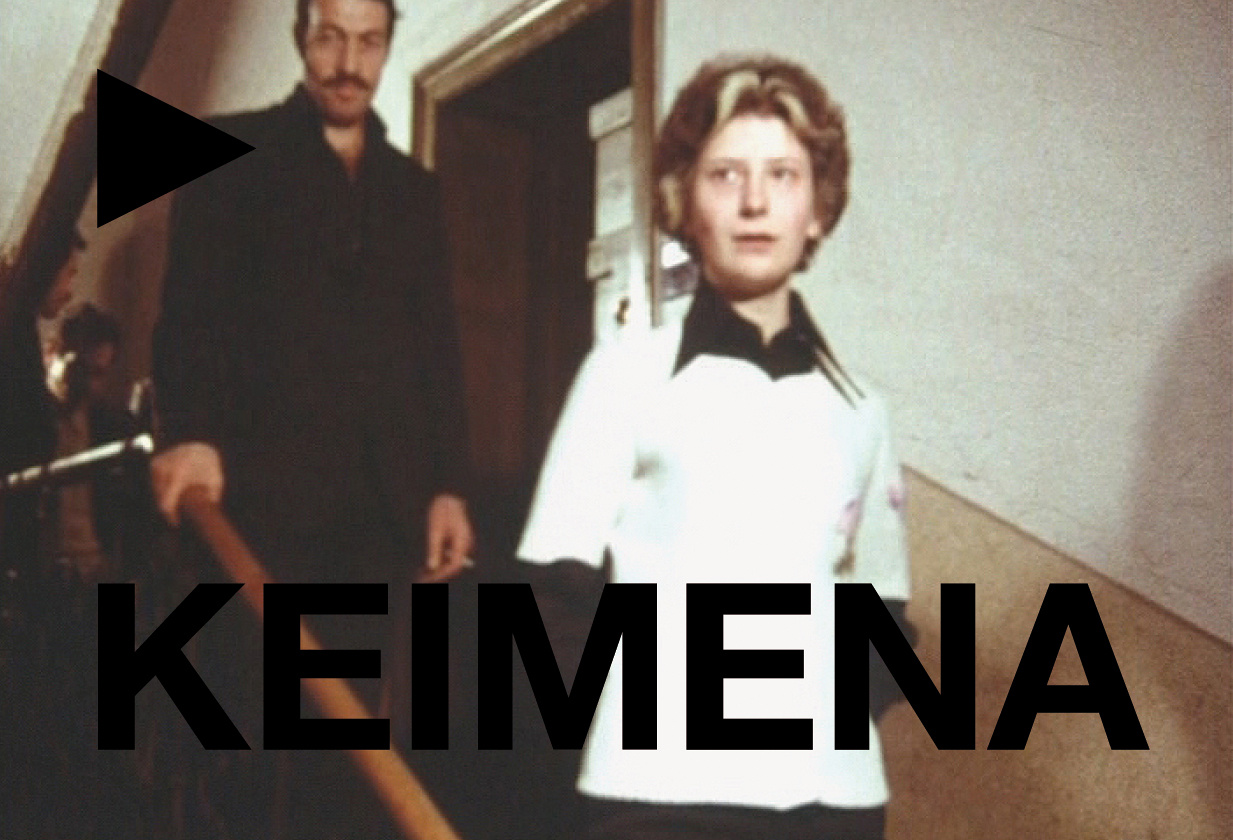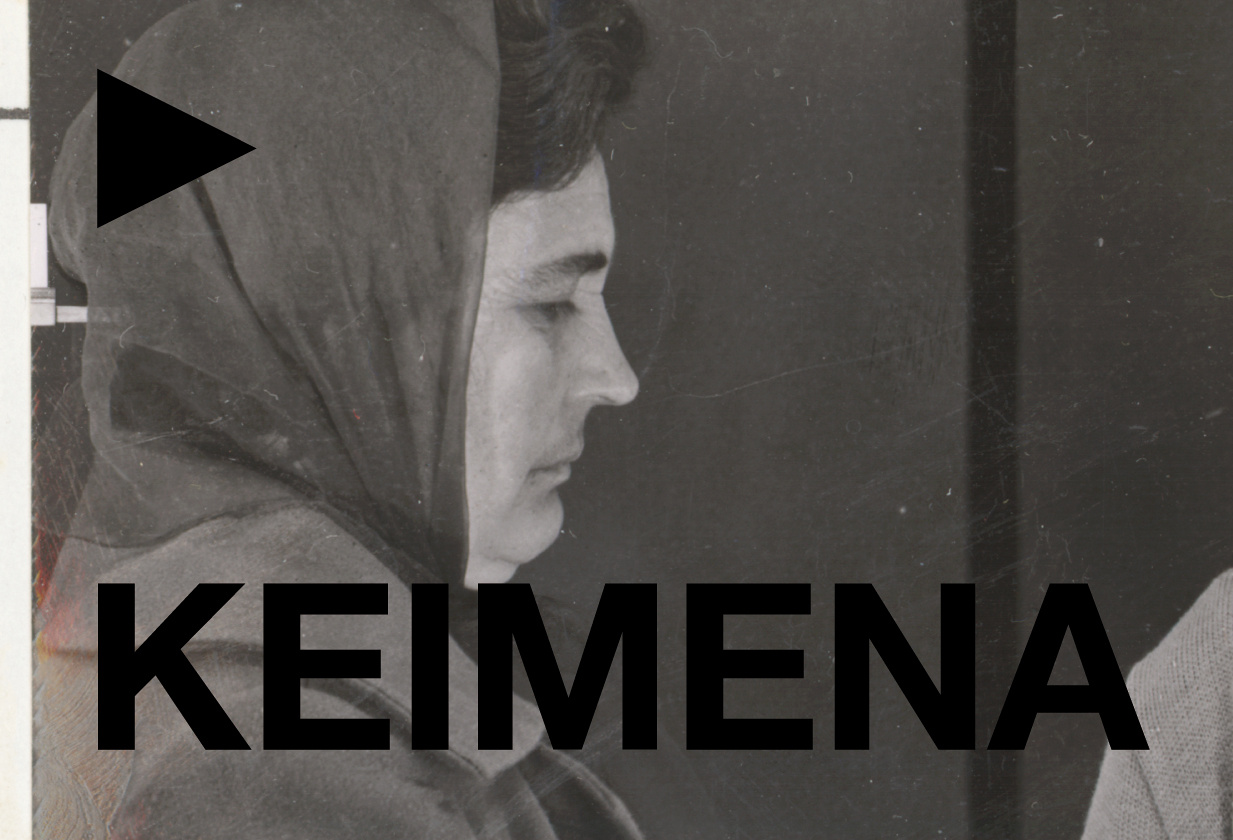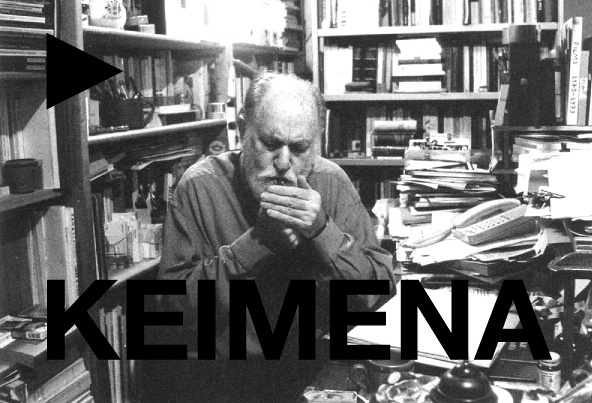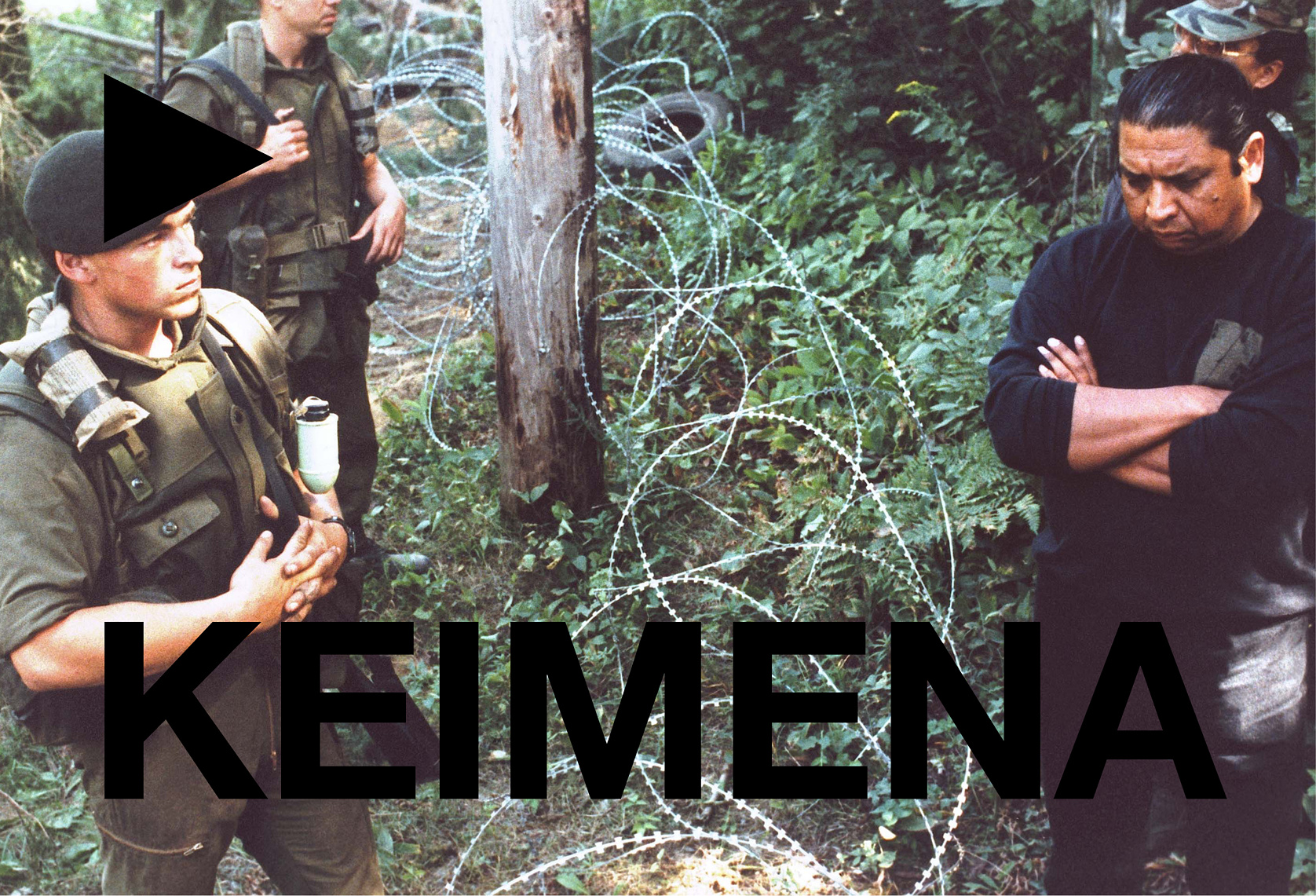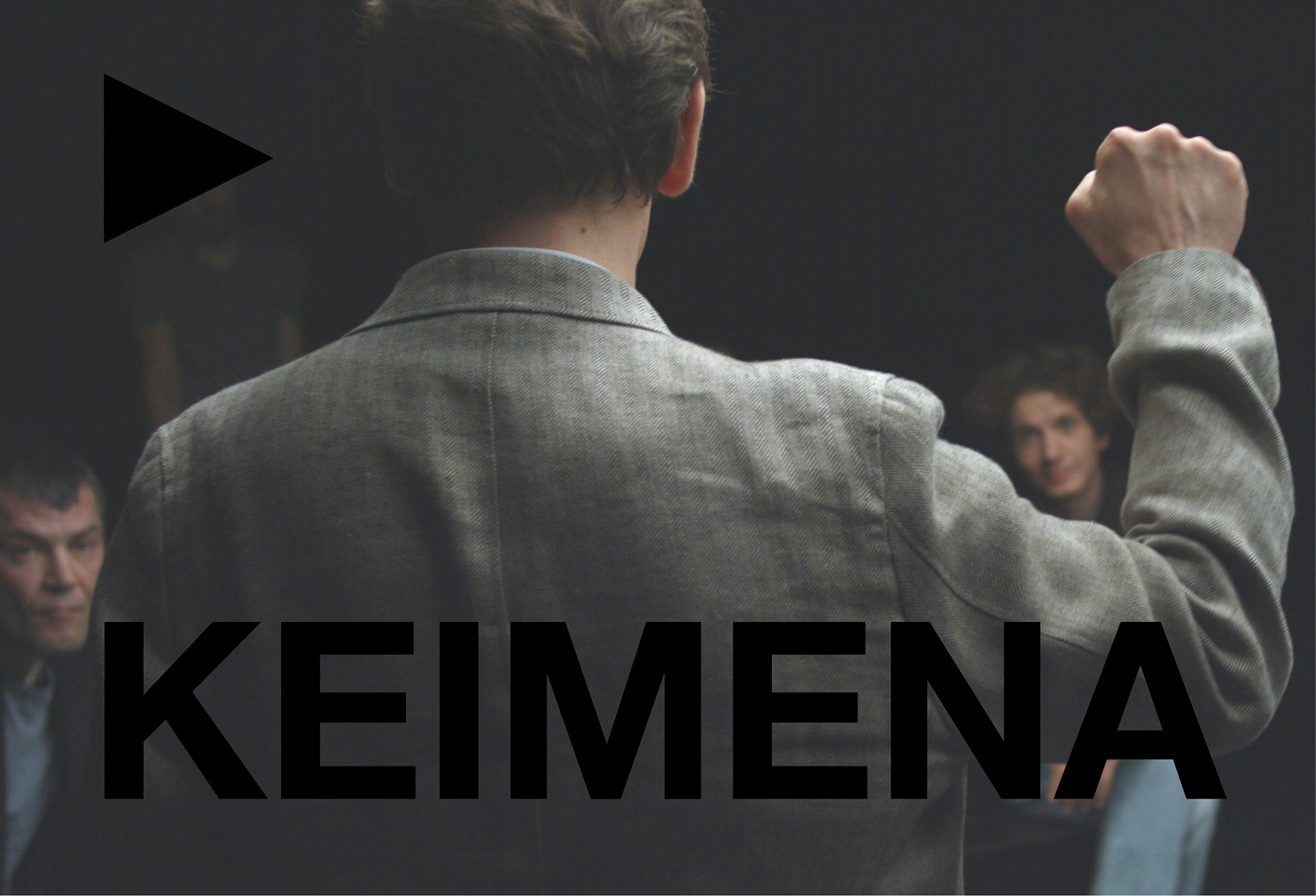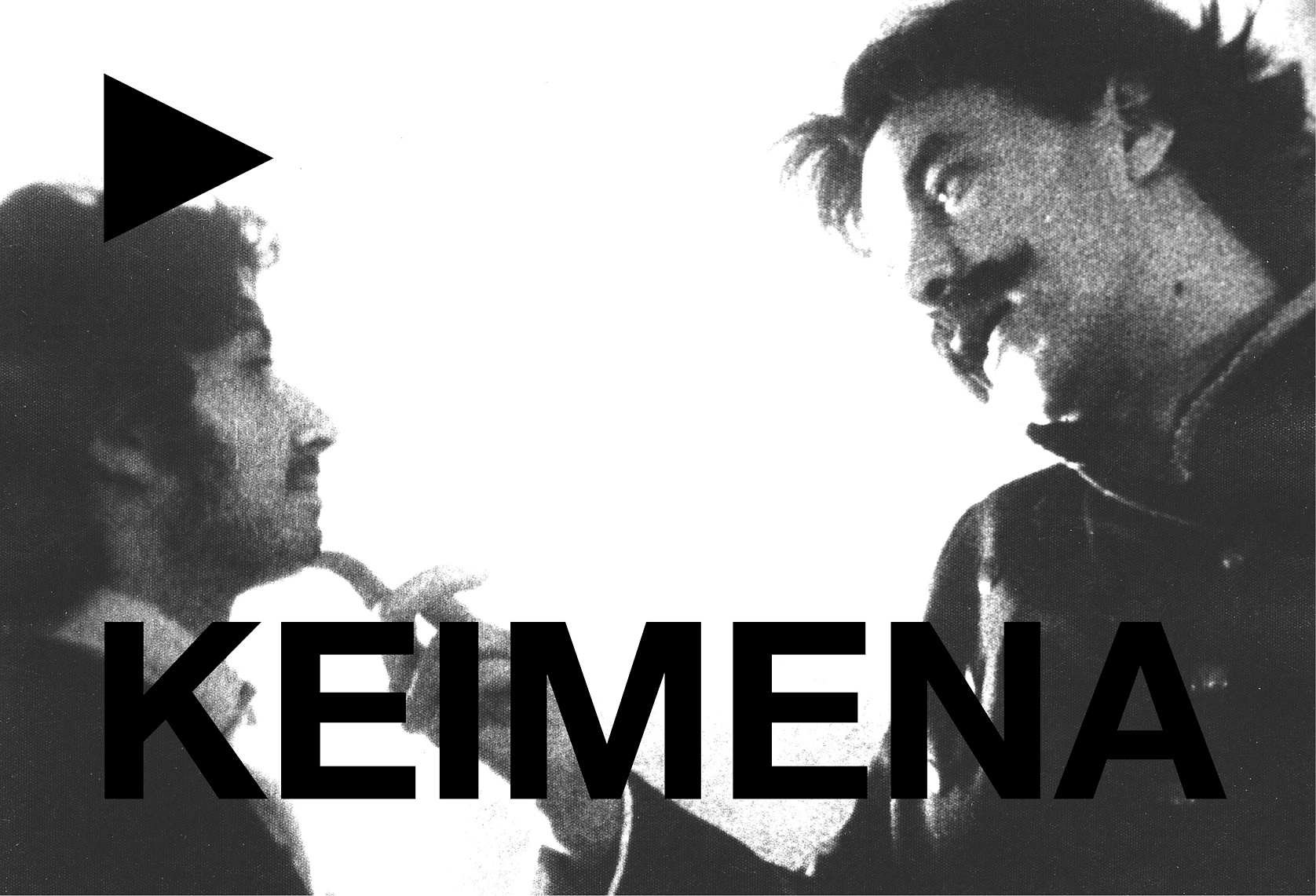About
Keimena: a documenta 14 Film Program on ERT2, airing Mondays at midnight from December 19, 2016 to September 18, 2017
Keimena is a weekly broadcast of films presented by the Hellenic Broadcasting Corporation (ERT), and organized by documenta 14. By relying for its presentation on ERT, Greece's public television broadcaster, the project aims to extend documenta 14’s scope into viewers’ homes, imagining and constituting new and different communities, contexts, and contingencies.
Keimena’s program focuses on the fields of experimental documentary and fiction, presenting films whose approaches and topics engage social, political, and poetic concerns and whose concepts, themes, and positions are in dialogue with the overall curatorial visions of documenta 14.
Television, both public and private, is a key factor in Greece’s recent history and development. Its importance in mediating and reflecting upon the country’s current socio-economic predicament cannot be overstated. Despite suffering severe budget cuts which affected its operability, ERT remains the official “public” medium, especially in Greece’s collective consciousness; ERT’s controversial closure in 2013 as part of austerity measures generated immediate and extensive protests nationwide.
While TV viewing can appear to be a solitary activity, it is also—especially when compared to online surfing and streaming habits—a synchronized and therefore collective experience that happens in real time. Like visiting an exhibition, it too requires prior programmatic commitment from the viewer and facilitates the subsequent sharing of the experience. Such structural qualities and the fundamental principles of public service broadcasting—including a sense of community, distance from vested interests, and attention to social minorities—are as essential to Keimena as the individual themes of the many films included in the series.
The films are chosen both for their pertinent subject matter, as well as for the singular filmic forms they present. Each provides a reflection on some of the most invisible, fleeting, and quotidian aspects of human social relations as well as those of global structures of power. Each film develops its own unique language to reflect the intangible reality it presents. The program includes films dating back to the 1970s, recent productions, and new films commissioned by documenta 14. All of them tackle contemporary issues pertinent to life in Greece and elsewhere in times of economic hardship and social unrest.
Given the exceptional quality and rarity of the films presented, the Keimena curators hope that the program quickly establishes itself as a weekly highlight for Greek cinephiles and the broader public. Keimena aims to be one of the most exciting presentations of film culture on television worldwide, offering direct access to a range of feature-length and short experimental documentary and fiction films by prominent independent filmmakers and artists that have restricted availability elsewhere.
Keimena functions within the guidelines of ERT and of public service broadcasting, and its content engages the television viewer over a period of nine months of regular weekly programming. In the same way that a film is introduced before being screened at a film festival, or artworks in a museum exhibition are accompanied by an informative label, Keimena broadcasts are preceded by short introductions that offer a broad reading and contextualization that complements and enriches the viewing session. Written by international authors—film and art critics, philosophers, journalists, filmmakers, and other experts who have a unique knowledge and insight into a particular film—these introductions are as much an integral part of the programming effort as the films themselves.
Keimena runs on ERT2 every Monday at midnight; the duration of the broadcasts varies according to the running time of the films. Additionally, the films will be available for streaming within Greece via webtv.ert.gr for seven days after each broadcast. All films are presented in their original language with Greek subtitles.
Credits
Keimena is a documenta 14 Film Program, curated by Hila Peleg and Vassily Bourikas.
Project Coordination: Konstantinos Frangopoulos (Venia Vergou: May 2016–February 2017)
Editorial Coordination: Antonia Rahofer
Editor: Filipa Ramos
Assistant Editor: Ben Eastham
Copy Editors (Greek): Lenia Mazaraki, Fotini Lazaridou-Hatzigoga
Translation and subtitles: Tony Moser, Giorgos Giannakopoulos, Yannis Andreou, Yannis Papadakis, Pelagia Tsinari
Postproduction: StudioBauhaus, Athens
Opening sequence concept and design: Mevis & Van Deursen, Amsterdam
Opening sequence realization: Blommers / Schumm, Amsterdam
Music in the opening sequence: Mort Aux Vaches: Untitled 4 by Pan Sonic and Charlemagne Palestine, 2015


